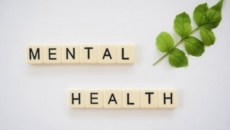F FOR FEMINISM
At times, societal issues may become reduced to misunderstood buzzwords that become limiting in their impacts and constraining in their understanding. Such is a topic that while has gained much popularity over the decades, is often misconstrued and misrepresented: feminism. Many celebrate it, many are against it, some claim that it doesn’t (or worse, shouldn’t) exist. One thing is for sure - feminism is here to stay. Although this may produce a fear in the hearts of those that may not fully be educated on what feminism is, the solution is to erase the fear of the unknown by making it known.
So, what is this “Feminism”?
Don’t let the “fem” in feminism fool you. Feminism is not about the female sex being superior to that of the male sex. Rather, feminism stands for the advocacy of female rights, based on the idea that everyone is equal. Simply put, no matter what your gender is, you are no less than anyone else.
Okay, but why can’t we just call it equality?
We can. That said, feminism as a label acknowledges and implies the political undertone that the idea of women’s rights carries. There are countless years of oppressive regimes, patriarchal mindsets, and male-centric systems that have defined our societies and have stripped women of their rights and identities. From not being able to vote to not being allowed to work in certain occupations, the list goes on and on. Some wrongdoings still prevail today. When we say feminism, we recognize the socio-political factors at play behind the need for feminism and connotate that we are ready to raise our voices against them; we are allies.
Then, women should also be lifting things just as heavy as men, right?
Well, if they can and if they want to! Feminism is not about tit for tat, especially if biological tendencies make an appearance. Generally speaking, men tend to have more upper body strength and more muscle vs. fat. This may typically make it easier for men to lift heavy things. Does this mean we take away the opportunity from women to train at the gym and lift? No! Does this mean we have a battle of the sexes to prove that the general male population can lift heavier things than the general female population? Also no. If you like the fact that your husband does the handiwork around the house and you don’t want to do it yourself, so be it. Feminism just says that the opportunity for you to learn that handiwork and do it yourself if you wanted to, shouldn’t be taken away. Feminism is about the opportunity for everyone to realize their full potential, not about waging war using biological differences. It’s all about equal opportunity with a level playing field, not about equal outcomes necessarily. Plus we wouldn’t be asking men to give birth or go through menopause, would we?
Why do we even still need feminism now that things have changed?
Because of 1.5 million missing female births annually worldwide due to gender-biased (prenatal) sex selection. Because boys worldwide are 1.3 times likely to get the math skills they need, in addition to school-going children still learning gender normative biases everyday, leading to reduced female representation in STEM subjects, sports, and so much more. Because one-third of women worldwide still suffer intimate partner violence. Because still only 7% of Fortune 500 CEOs are women. Because a woman still earns $0.77 for every dollar earned by a man, worldwide and in Canada. Because in Canada alone, 1 in 7 girls are still leaving school early or missing school due to lack of accessible menstrual products. Because if Canada accelerated its progress on gender equality, $150 billion is possible in incremental GDP growth. Finally, because the question of why we need feminism today still gets asked. We have made progress, but we are far from done.
Should I call myself a feminist?
Share that you’re a feminist at a house party, and some discomfort in the room becomes apparent. This is so because the word seems to have gained a harsh, radical, and aggressive reputation. In a world where many seek to appear agreeable and easygoing, it’s often the safest to say, “I’m not a feminist, but I believe in equality”. Sounds like, “I don’t drink chai, but I often consume a hot drink made by infusing the dried crushed leaves of a tea plant in boiling water mixed with milk and cardamom.” The notion of believing in equality, but not being a feminist gives off the idea that feminism is different from equality, and/or the fear of being associated with feminists. In reality, if you fundamentally disagree with the presumption that men are superior to women, you are a feminist! Being a feminist is as simple as acting in a way that shows you’re an ally in ensuring an equal world.
How do I practice feminism?
While marching at rallies and signing petitions is oh-so-amazing, feminism also starts from home before rippling into the rest of the world! Here are some easy-to-integrate habits that work towards positively spreading equality:
- Educate yourself. Listen to understand. Embody judgment-free learning.
- Love yourself unconditionally, no matter what your sex or gender is.
- Share equal responsibilities with your partner at home.
- Empower women to reach their full potential, encourage them, and don’t pull them down.
- Ensure fairness, equity, and equality in the workplace.
- Teach your children about equality and encourage them to pursue their interests and passions without stereotyping them to fit into a gendered bucket.
- Call out sexist traditions and sexist uncles and aunties (most of all, please don’t become one!)
While the ABCs of feminism can teach a lot about the meaningfulness and significance of its roots, it is important to note and recognize that the movement has branched out and evolved into many other forms. If you hold a different understanding of feminism and a different belief system when it comes to practicing it, just ensure it comes from an informed and respectful place. The bottom line is that no matter who you are and what you believe, we are all equal in the fact that we are all but different. Our differences do not separate us, but bring us together under the umbrella of our unique individualities.






